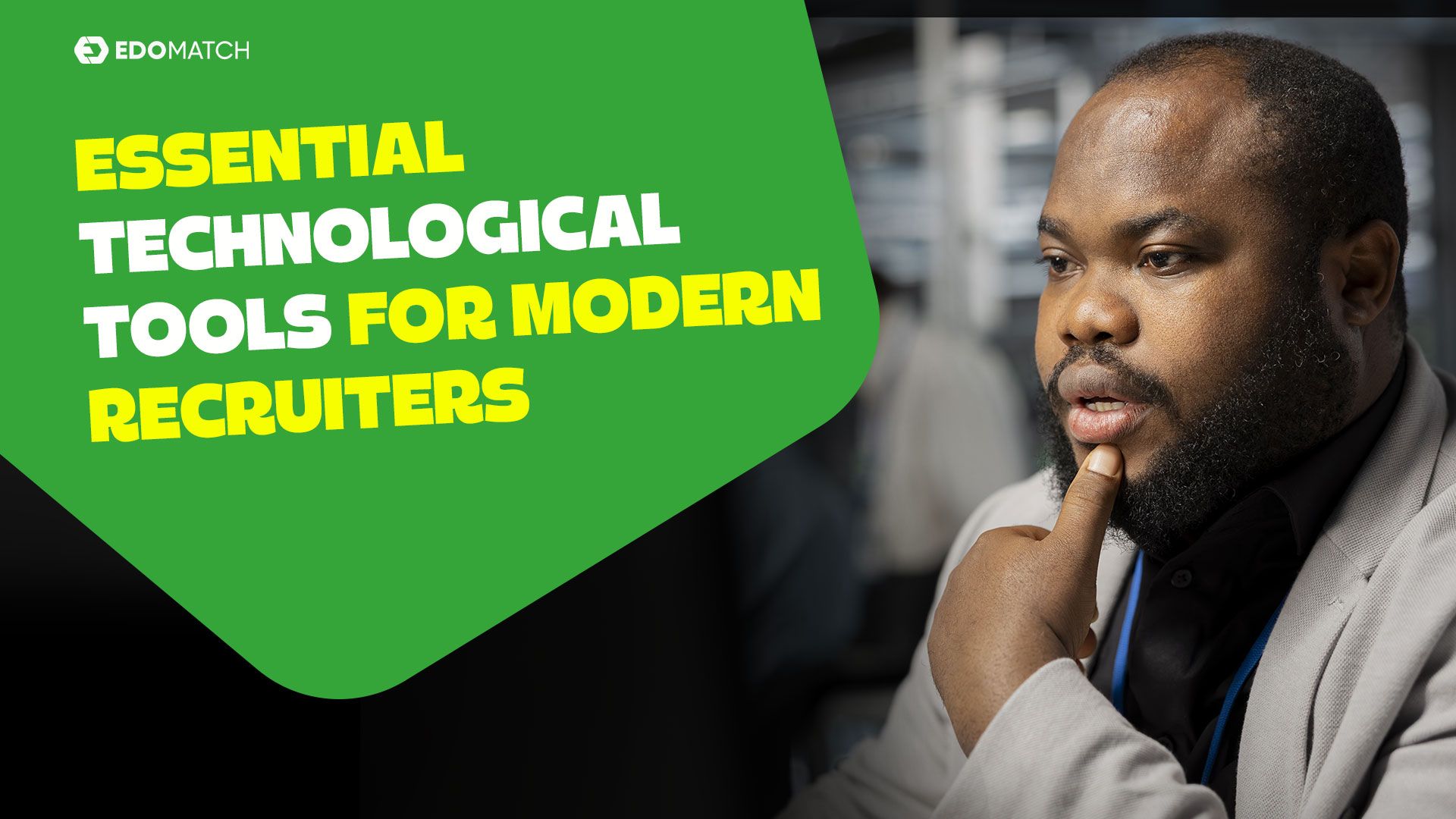The job market is evolving at a rapid pace. Between the rise of artificial intelligence, the accelerated digitalization of companies, and the growing importance of hybrid work, recruiters are no longer looking only at degrees but primarily at skills adapted to the challenges of today and tomorrow.
According to a report from the World Economic Forum, more than 40% of the skills considered essential in 2020 have already changed in less than five years. By 2026, this figure is expected to increase even further. To remain competitive, every professional must therefore identify the key skills that make a difference in the eyes of employers.
In this article, we will review the 9 most in-demand skills recruiters are looking for in 2026, explaining why they are strategic, in which contexts they apply, and how you can start developing them today to boost your employability.
Why are skills evolving so quickly in 2026?
Emerging technologies, artificial intelligence, and automation are profoundly transforming the way we work. Some jobs are disappearing, new ones are being created, and most existing roles are seeing their requirements evolve.
In 2026, recruiters will primarily be seeking profiles capable of adapting quickly to this new environment. The ability to engage in continuous learning, integrate new tools, and collaborate across diverse contexts is becoming more important than the static mastery of a single skill.
This rapid evolution can be explained by several factors:
- The technological revolution: AI, data, and automation are reshaping every sector, from marketing to healthcare.
- The globalization of talent: companies are hiring worldwide, which increases competition and requires universal, transferable skills.
- Hybrid work: the widespread adoption of remote work and international teams calls for stronger communication and project management skills at a distance.
- The drive for innovation: organizations need talents capable of thinking differently and bringing value in an increasingly competitive market.
In other words, the skills most in demand in 2026 are not just technical. They combine hard skills (technical know-how) and soft skills (human and behavioral abilities), with a strong emphasis on flexibility and lifelong learning.
The 9 Most In-Demand Skills Recruiters Are Looking for in 2026
1. Mastery of Artificial Intelligence and Digital Tools
By 2026, AI is everywhere: assisted writing, task automation, predictive analysis. Recruiters want candidates who not only know how to use these technologies but also understand their impact on business.
Example: A marketer who uses ChatGPT to craft campaigns or Midjourney to create visuals gains precious time and becomes more competitive. How to develop it: regularly test new tools, take short courses (MOOCs, LinkedIn Learning), and apply them in personal or professional projects.
2. Data Analysis and Critical Thinking
Data is now the fuel behind strategic decisions. In 2026, knowing how to collect, interpret, and leverage data is essential. Beyond technical know-how, recruiters value critical thinking to turn numbers into actionable insights. Example: An HR manager analyzing turnover data can suggest concrete actions to improve employee retention. How to develop it: practice with Excel advanced functions, Power BI, or Google Data Studio, and train yourself to extract insights from real-life cases.
3. Communication and Storytelling
Even in the digital era, communication remains one of the most valued skills. In 2026, it’s not just about transmitting information but about persuading and inspiring through storytelling. Example: A project manager who can tell the story behind a product or project is more likely to engage both teams and clients. How to develop it: practice pitching, learn to structure your ideas in three key points, and study the techniques of great communicators (TED Talks, conferences).
4. Agile Project Management
Companies operate in increasingly uncertain environments. That’s why agile project management, with methods like Scrum or Kanban, has become a must. Recruiters want profiles that can coordinate teams and adapt quickly to change. Example: A tech startup developing an app needs an agile project manager to deliver versions regularly, test quickly, and adjust based on feedback. How to develop it: pursue an Agile or Scrum Master certification and apply agile methods to your everyday projects, even personal ones.
5. Complex Problem-Solving
As automation and AI take over routine tasks, recruiters seek candidates who can think critically and find innovative solutions to complex challenges. Example: An engineer facing a breakdown in an interconnected system needs analysis, creativity, and collaboration to solve the issue effectively. How to develop it: work on case studies, join hackathons, or attend design thinking workshops.
6. Creativity and Innovation
As machines handle repetitive tasks, creativity remains an irreplaceable human skill. In 2026, recruiters value talents who can generate fresh ideas, improve processes, and bring unique contributions.
Example: A UX designer who develops an innovative user journey can help a startup stand out in a crowded market. How to develop it: practice brainstorming, keep an idea journal, and draw inspiration from other industries to solve your own challenges.
7. Emotional Intelligence and Leadership
Team performance doesn’t rely solely on technical skills but also on emotional and relational intelligence. Recruiters in 2026 highly value candidates who can understand emotions, manage conflicts, and motivate others, even without a formal leadership title. Example: A manager who listens actively, manages tensions, and encourages their team to perform better will deliver stronger results long term. How to develop it: practice active listening, request feedback, and study the basics of relational psychology and empathetic management.
8. Adaptability and Lifelong Learning
In a fast-changing world, adaptability is the most universal skill. Recruiters seek candidates who can reinvent themselves, adopt new tools, and stay relevant in shifting environments.
Example: An accountant who learns automation software or a marketer who masters a new ad platform remains essential to their company. How to develop it: embrace a lifelong learning mindset. Take online courses, read industry books, and dedicate time weekly to developing new skills.
9. Cross-Cultural Skills and Remote Collaboration
With globalization and remote work, teams are more international than ever. In 2026, knowing how to collaborate effectively across cultures and at a distance is a major advantage.
Example: A project manager leading teams across Africa, Europe, and Asia must adapt to cultural differences to avoid misunderstandings and foster cohesion. How to develop it: work on international projects, improve your language skills, and master remote collaboration tools such as Slack, Notion, or Microsoft Teams.
Hard Skills vs Soft Skills: What Do Recruiters Prioritize in 2026?
In 2026, recruiters no longer evaluate candidates solely on their technical expertise (hard skills). While these remain essential to perform specific tasks, they are no longer enough to guarantee success in a complex, ever-changing professional environment.
What are hard skills?
Hard skills are measurable technical abilities: programming, mastering a software, project management certifications, or fluency in a foreign language. They are mostly acquired through education and practice. Example: coding in Python, using a CRM like Salesforce, or managing a Google Ads campaign.
What are soft skills?
Soft skills are behavioral and interpersonal abilities: communication, adaptability, emotional intelligence, creativity. They are harder to measure but make the real difference in collaborative settings.
Example: leading a multicultural team, persuading during a presentation, or finding innovative solutions to challenges.
What do recruiters prioritize in 2026?
Recruiters are looking for a balance between both. Hard skills prove what you can do, but soft skills show how you will adapt, collaborate, and evolve.
A LinkedIn study revealed that 89% of recruiters believe hiring failures are due to a lack of soft skills rather than technical shortcomings. This means that knowing how to code or analyze data is valuable, but being adaptable, collaborative, and innovative is now decisive.
In short, recruiters in 2026 favor well-rounded profiles: candidates who combine technical expertise with strong interpersonal intelligence, and who are committed to continuous learning.
Mistakes to Avoid to Stay Attractive to Recruiters
Despite good intentions, many professionals still make mistakes that harm their employability. The most common one is relying solely on diplomas or past experience, believing it will be enough. In reality, the job market evolves too fast for static profiles to remain relevant.
Another mistake is underestimating soft skills. Many candidates highlight only their technical expertise, forgetting that collaboration, adaptability, and communication often determine who gets hired.
Outdated resumes and LinkedIn profiles are another red flag for recruiters. If your profile shows stale information, it may suggest that you’re not active in the job market or lack professionalism.
Finally, neglecting continuous learning is a major risk. In a world where tools and roles change rapidly, failing to stay updated means closing doors to future opportunities. Candidates who don’t show curiosity or initiative are quickly outpaced by those who do.
Conclusion
The most in-demand skills in 2026 reflect a labor market in constant transformation. Recruiters are no longer satisfied with purely technical profiles—they seek professionals who can adapt, collaborate, and learn continuously.
Mastering AI tools, analyzing data, communicating with impact, managing projects with agility, or developing emotional intelligence are all competencies that stand out. Yet the true differentiator is mindset: curiosity, openness, and proactive learning.
By choosing even one skill to improve today—through training, practice, or mentorship—you set yourself on a path toward greater opportunities. The professionals who thrive in 2026 will be those who combine hard skills and soft skills while embracing lifelong learning as a daily habit.



